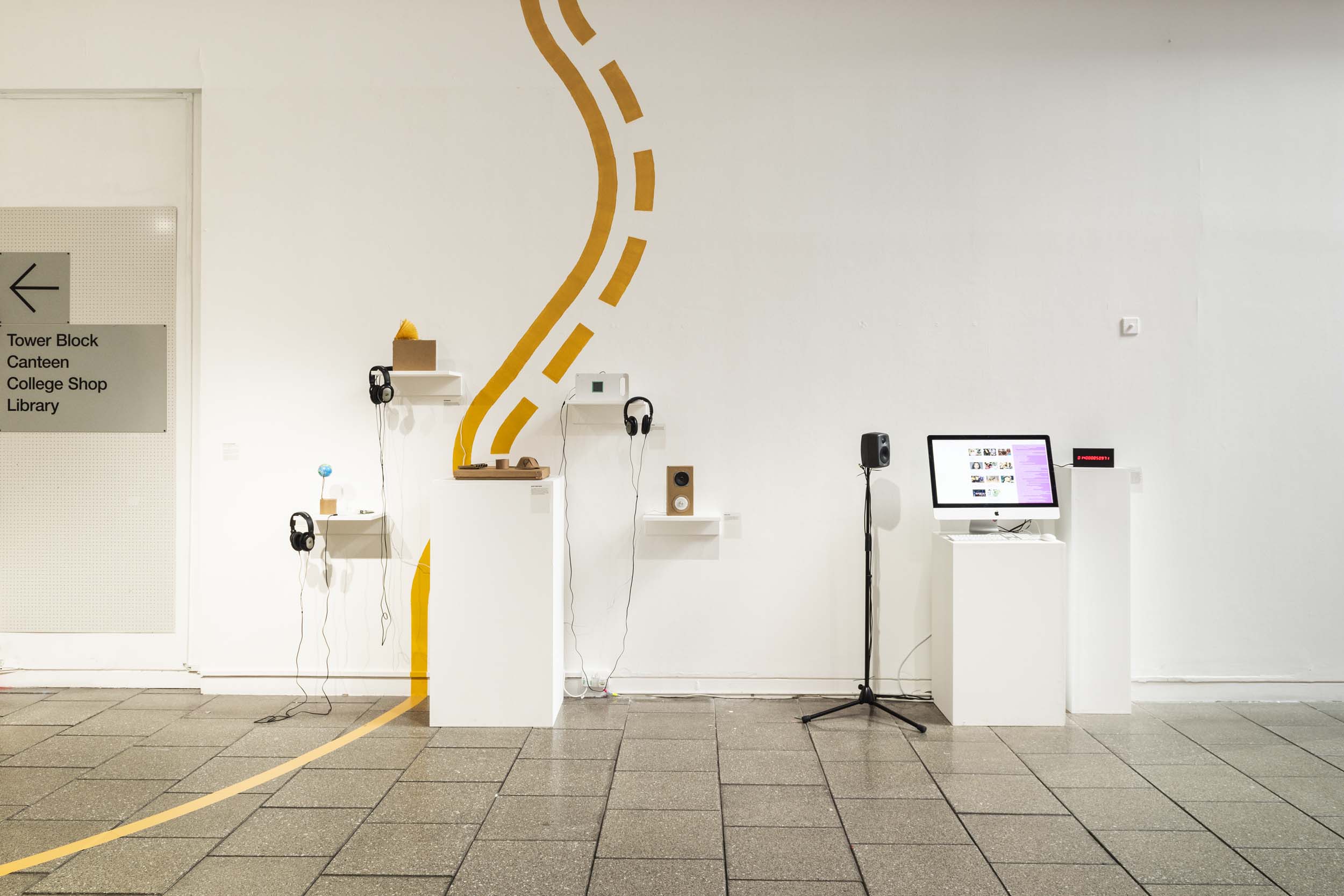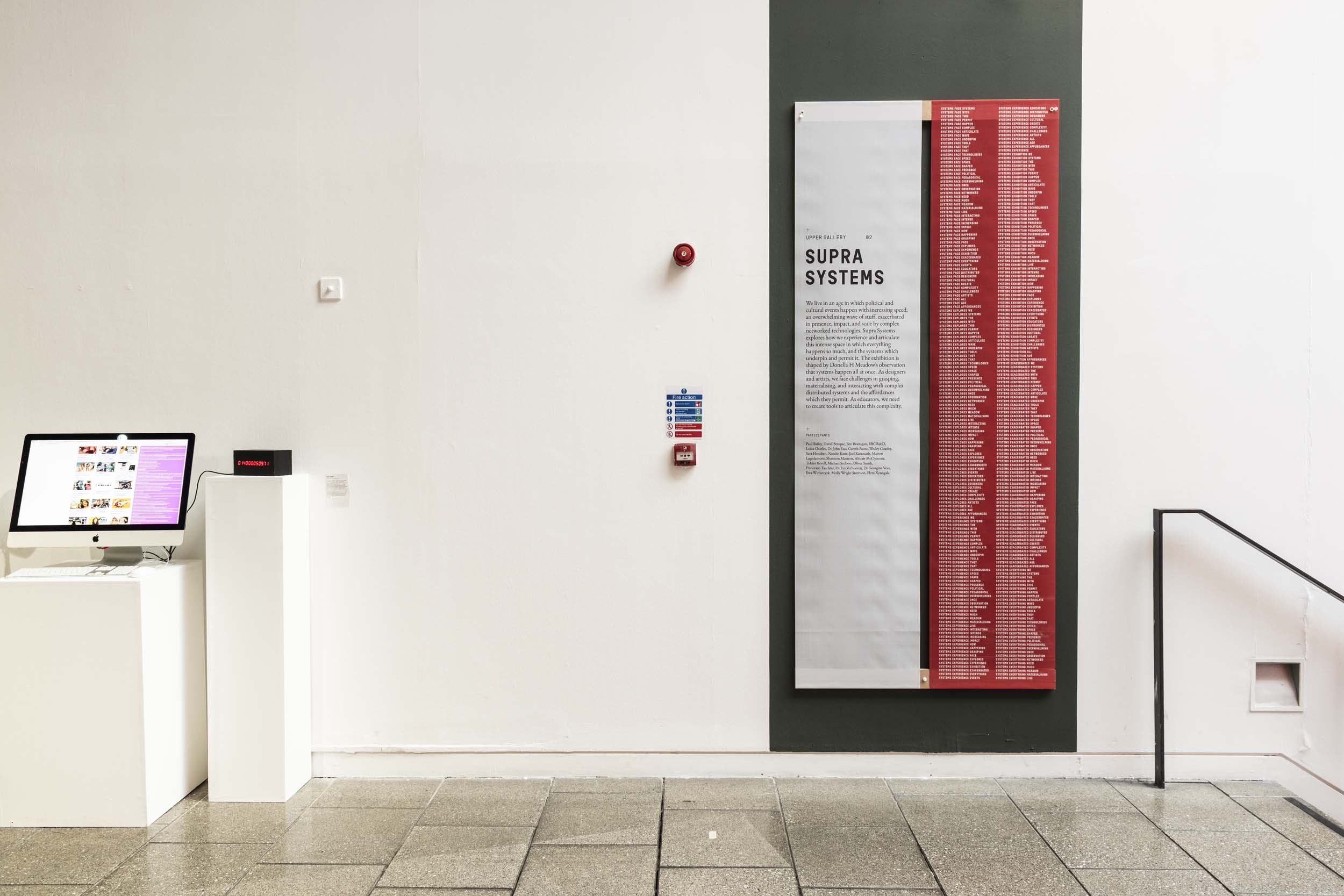User Agent at London Design Festival

For London Design Festival 2018 myself and Eva Verhoeven collaborated on an installation as part of the exhibition Everything Happens So Much.
The exhibition was shaped by Donella H. Meadow’s observation that ‘Systems happen all at once’, and the title was taken from a Horse e-Books tweet. Horse e-Books was a Twitter spam account that spat out fragments of modified text. Supposedly created as an automated bot to promote electronic books, the account was later revealed to be human-run, uncovering the human intent behind an unruly system.
In response to the theme of system complexity Eva and I dug into the strange dark corners of the internet that are populated with fake websites set up explicitly for fake human users (i.e. bots) to 'look' at.
This strange scenario is the unintentional perversion of the internet into a mass surveillance system to service the needs of digital advertising. We found that real and fake 'eyeballs' are brokered, spoofed, bought, sold, trafficked, simulated to the tune of $6 billion dollars a year, as described in this Bloomberg article from 2015.
We decided to create our own complex system of intrusive adverts and fake eyeballs to simulate the position of the embattled user in this antagonistic relationship between technology platforms and predatory capitalism.
The installation was a chaotic set of technical assemblages (a website, browser extension and text-to-speech bot) that battled each other for the visitors/users attention. The display would produce a confusing mix of advert headlines and images which were scraped from around the web. Multiple browser windows would open, close and move around whilst the text-to-speech bot would try to attract your attention. Attempts to use it would be a game that no-one wins.

User-Agent A user agent is software (a software agent) that is acting on behalf of a user.
User-Agent is a software assemblage that simulates the broken economic mechanisms of the Internet and the embattled position of the ‘user’. Human agency was formerly the majority influence on the Internet but has now been surpassed by automated software, which simulates, captures and monetises human behaviour.
According to some research non-human traffic is absorbing between 6 and 14 billion dollars of digital advertising spend annually. In attempts to capitalise on the ever decreasing revenue not consumed by Google, Facebook or fake traffic publishers and designers of platforms are competing in a market where success is measured by the most clicks generated regardless of content quality or manipulation.
This permeates the majority experience of the Internet today, which has therefore become a poorly constructed veneer concealing the inward looking system driven by market forces and the quantification of human experience.